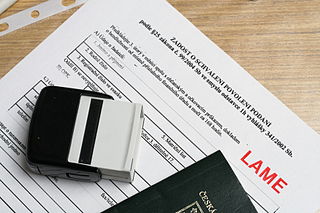This post was originally published on the Cato-at-Liberty blog here and is republished with the permission of the author.
Open Borders Note: See also Vipul’s post and our posts tagged economic determinism.
Labor markets are heavily distorted by immigration restrictions, producing wide and persistent wage differences for observably identical workers in developed and developing nations. Income for low skilled American workers is 16 times as high as Haitians in Haiti, about 7 times as high as Indians in India, and about 4 times as high as Mexicans in Mexico—all adjusted for purchasing power parity. Just by moving here immigrants can largely close that wage gap.
There are very limited avenues for low skilled immigrants to immigrate legally, which raises an important question: if the economic benefits of immigrating are so high, why are there only 11 to 12 million unlawful immigrants here?
Below are the two broad reasons:
First, the benefits of immigrating are not as high as they seem. The probability of being employed in the destination country is a vital variable because unemployment does not confer any benefits on the immigrant. The skill level of prospective unlawful immigrants restricts job opportunities to certain occupations. If the sectors where low skilled immigrants work have high unemployment rates, as many do now, the chances of earning higher wages here is lower so the economic benefits of immigration are lower. Downward wage bargaining by immigrants is limited but unlawful immigrants do take a wage cut, all else being equal, of about 20 percent to compensate their employers for the legal risk of hiring them and other reasons. Growing economies in places like Mexico, China, and elsewhere might partially offset the benefits of immigrating by promising higher incomes in the near future.
Second, the cost of unlawfully immigrating is very high. Opportunity costs, search costs(including language barriers), transportation costs, legal costs, the probability of dying en route, the probability of being sold into slavery, and the probability of not making it to the United States despite paying the smuggling fee are all high and increase risk. Immigration enforcement is very effective at deterring most would-be unlawful immigrants. Highsmuggling fees are a high up front cost.
Immigration can be understood as an investment over a period of years. The length of time the immigrant spends here employed at higher wages increases the economic benefits of immigrating. The costs of immigrating, like paying for a smuggler, are fixed while there seems to be a low marginal cost for staying here to avoid immigration enforcement. The psychic costs could shift with time.
Here is an example:
Assume a Mexican immigrant wants to illegally move to the United States and work in construction. A marginal worker in the construction sector would have about an 86.2 percent chance of being employed at $40,000 with an effective tax rate of about 18 percent (including income and FICA taxes) and a 2.6 percent annual average wage increase.
The cost of being smuggled in ($9,000 by boat, $4000 by land), buying documents to decrease the chances of detection, and opportunity cost from being out of the labor force is $11,000 assuming no psychic costs. After the first year, I assume that the out of pocket cost of living illegally was $1,000.
Assuming a two percent discount rate, the net present value of moving to the United States for five years is $126,000. The net present value (NPV) of working in Mexico assuming a starting wage of $10,000 a year, 95 percent chance of being employed, a one percent wage growth, and a two percent discount rate is about $48,000. The wages are about 2.6 times as high assuming the immigrants successfully enters on his first attempt and immediately finds a job.
The uncertainty of working illegally in the United States, a higher smuggling price, and separation from one’s home dramatically increase costs. A relatively low annual cost of $11,000 a year in addition to smuggling fees of $9000 in the first year lowers the NPV to $77,340, just 61 percent greater than staying in Mexico. Psychic costs are higher for immigrants from countries that do not send many in the first place—like Yemen or the Central African Republic—because there is not a diaspora to fit in to. Unlawful immigrantsare typically young, male, single, and without families—groups with the lowest psychic costs of immigrating. The opportunity cost of using capital to pay smugglers is also high, especially in poor countries.
Immigration enforcement has a gargantuan deterrence effect—larger than any other factor. The vast majority of would-be unlawful immigrants are deterred by breaking immigration laws and the punishments—even if there is a small chance of being caught. A 10 percent increase in immigration enforcement hours along the border produced a 2.5 percent increase in smuggling prices—raising the cost of unlawfully immigrating. The size and scope of Border Patrol has increased substantially since 1980—virtually doubling in size since 2004.
Here are the first year wage gains including the cost of smuggling from different countries of origin:
|
Source Country |
Smuggling Cost |
Median Ind. Earnings, US Full Time |
Income in Home Country |
Wage Gain |
Wage Gain/Smuggling |
| Brazil |
$16,000 |
$31,905 |
$12,594 |
$19,311 |
1.21 |
| China |
$50,000 |
$31,863 |
$5,445 |
$26,418 |
0.53 |
| Cuba |
$10,000 |
$24,103 |
$5,400 |
$18,703 |
1.87 |
| Haiti |
$1,500 |
$35,103 |
$726 |
$34,377 |
22.92 |
| India |
$60,000 |
$50,443 |
$1,509 |
$48,934 |
0.82 |
| Mexico |
$9,000 |
$13,520 |
$10,047 |
$3,473 |
0.39 |
Source: 2011 American Community Survey, DHS, Havocscope.
The smaller the wage gain to smuggling ratio is, the smaller the pure economic benefits of coming here are, assuming successful entry. If the Coast Guard was less effective or if Haitians could find a cheaper way to enter the United States unlawfully, many more would come. The pressure from Mexico is not nearly as great as many imagine. These numbers are only averages and probably understate the desirability of coming here but they explain why Indians and Chinese send so few unlawful immigrants despite the massive wage gains: immigration enforcement is very effective so it raises the price of smuggling.
The costs of moving to the United States are very high and the benefits are lower than international wage differences make them seem. The benefits from moving to the United States for millions of people would be enormous for most Americans, the immigrants themselves, and those who stayed behind. Given those large wage differences, it is truly remarkable that there are so few unlawful immigrants in the United States.



